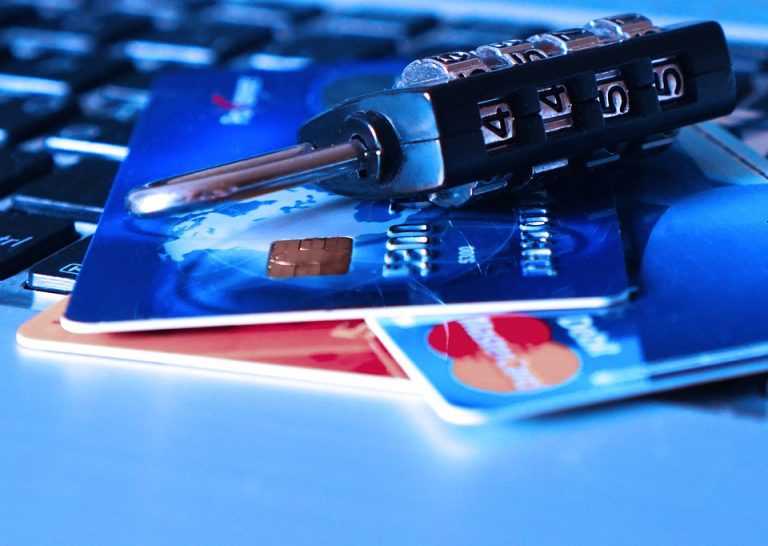Watch Out For These Credit Report Errors!
According to a study from Consumer Reports, more than one-third of Americans have credit reports with at least one error.1 Since these mistakes can lower your credit score and lead to big financial consequences - and since information, even incorrect information, will stay on your credit report for years if it’s not addressed - it’s important to review your report regularly and look for inaccuracies.

A regular credit report inspection is one of the best ways to maintain good credit and get the best rates on cards, loans, and more. You’re entitled to one free annual copy of your credit report from each of the three major reporting agencies (TransUnion, Equifax, and Experian), so make it a priority to review your report at least once a year and notify the proper agencies to correct any mistakes.
This guide will walk you through some of the errors consumers commonly find on their credit reports. We’ll also explain how to correct the error and get back on the road to good credit. But first, let’s discuss why these errors happen in the first place.
Why Do Credit Report Errors Happen?
Mistakes on your credit report can happen for a few reasons, varying in severity from a simple human mistake to sophisticated identity theft schemes.
Human Error
Employees at financing institutions and credit bureaus process hundreds of credit transactions each day. At that volume and speed, mistakes may result from time to time - and some of them could appear appear on your credit report.
Application Typos or Mistakes
It’s rare, but it happens: someone applies for a new credit product but misspells their name, enters an incorrect address, or puts down the wrong Social Security number. If the information they mistakenly enter matches yours, their actions might be attributed to you.
Identity Theft
About 1 in 20 Americans have their identities stolen per year.2 Identity thieves may use your credit information to apply for loans, open new credit cards, and/or make purchases with your credit cards - all of which can bring down your score (and cause other financial disruptions as well.)
Common Credit Report Errors
Now that you understand how credit report errors can happen, keep your eyes peeled for these common inaccuracies.
Incorrect Identifying Information
Simple mistakes, such as listing the wrong name, phone number, or address on your report, can cause someone else’s account, balance, and/or payment information to be presented as yours. If the other person has an imperfect credit history, it can bring down your credit score instead of theirs.
Inaccurately Listed Credit Applications
Applying for a new loan or credit card can knock a few points off your credit score. This impact remains for an average of six months, so if you see an application listed that you didn’t submit, address it quickly by contacting a credit reporting agency to mitigate the damage.
Wrong Balance and/or Payment Information
If your credit score suddenly nosedives, a mistakenly-listed late or missed payment may be to blame. A late payment on your credit report can bring your score down significantly and affect your chances of being approved for any credit you apply for in the near future. Additionally, late payments can linger on your report for up to seven years. Avoid these far-reaching impacts by immediately reporting any erroneous late payments to the proper credit bureau.
If your payment history looks okay, check and see if your listed credit balance has gone up. The higher your credit balance grows, the bigger your credit utilization ratio becomes; and since your credit utilization ratio counts for about 30% of your credit score, this can have a detrimental effect on your score. If your credit report lists a balance higher than your actual balance, get it corrected quickly.

I Found An Error On My Report! Now What?
Finding an error on your credit report can be alarming, but you can fix it in just a few steps.
- Contact the agency (TransUnion, Equifax, or Experian) that issued the erroneous report.
- Report the specific error(s) you’ve found to the agency. If possible, provide documentation or other evidence to support your claim.
- Check your credit report from the other two bureaus as well to see if the mistake has made its way there as well. If so, contact those bureaus as well.
If the error on your report was due to a simple misunderstanding or human error, that should be all you need to do. But if the error stems from identity theft, take swift extra actions to put a stop to the thieves’ fraudulent behavior.
If You Suspect Identity Theft
Here are some critical steps to take if you are a victim of identity theft.3
- Notify affected creditors or banks. If the identity thief charged any purchases to your credit card(s), report the fraudulent purchases to the proper bank so you can get them removed from your balance.
- Freeze all credit and debit cards, and request new ones with new card numbers.
- Change your password on any accounts affected by the identity theft. This may include online bank accounts and/or accounts with online retailers where your bank information is stored.
- Call any one of the major credit reporting agencies and ask them to place a “fraud alert” on your credit report. This will trigger the alert to appear on your credit report for one year across all three agencies.
- Report the identity theft to the Federal Trade Commission (FTC) at 877-438-4338.
A sharp eye on your credit score can alert you of any future credit report mistakes that need correcting. Download Upgrade’s Credit Health tool to get alerts, advice, and more!


